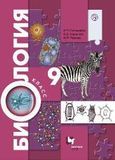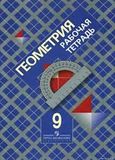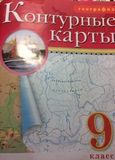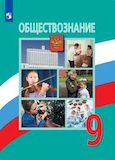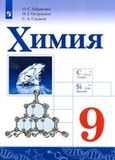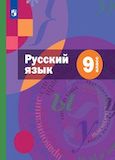Стр.81 Unit 9 ГДЗ Вербицкая Forward 9 класс
ЧТЕНИЕ И ЛЕКСИКА
1 Поработайте в парах и завершите сравнения. Воспользуйтесь словарем. Затем ответьте на вопросы, приведенные ниже.
храбрый, нежный, гордый, тихий, слепой, мудрый
• Есть ли у нас похожие сравнения в русском языке?
• Какие животные, по вашему мнению, самые мудрые/сообразительные?
мудрый, как сова
гордый, как павлин
храбрый, как лев
тихий, как мышь
нежный, как ягненок
слепой, как летучая мышь
Решение #
1. wise (мудрый)
2. proud (гордый)
3. brave (храбрый)
4. quiet (тихий)
5. gentle (нежный)
6. blind (слепой)
I think dogs, horses and dolphins are the smartest animals. These animals are able to understand humans. Horses and dogs have a good memory, they understand how to manipulate people and beg for a treat. The dolphin brain has even more convolutions than the human brain!
(Я считаю, что собаки, лошади и дельфины – самые умные животные. Эти животные способны понимать человека. У лошадей и собак хорошая память, они понимают, как манипулировать людьми и выпросить лакомство. Мозг дельфина имеет даже больше извилин, чем человеческий мозг!)
2 Посмотрите на фотографию и прочтите название и введение статьи. Как вы думаете, о каком существе идет речь?
Решение #
I think this article is about a chameleon or an octopus.
(Я думаю, что эта статья о хамелеоне или осьминоге.)
3 Прочтите текст по мере его прослушивания и проверьте свои предположения из Задания 2. Какая информация показалась вам наиболее интересной?
Решение #
Possible answers: The size (over nine meters); it can grow new legs; has three hearts; can escape through small holes; intelligence is not easy to understand; the US Air Force thought studying octopuses could help them build better computers; each arm can think for itself; can play with toys and open jars; can change its color and pattern; may have a language.
(Возможные ответы: размер (более девяти метров); у него могут вырасти новые щупальца; у него три сердца; он может убегать через маленькие отверстия; интеллект нелегко понять; Военно-воздушные силы США считают, что изучение осьминогов могло бы помочь им создавать более совершенные компьютеры; каждое щупальце может думать сам за себя; может играть с игрушками и открывать банки; может менять свой цвет и рисунок; может иметь язык.)
4 Прочитайте текст еще раз и выберите правильные ответы.
1 В настоящее время некоторые ученые считают, что
а все осьминоги более разумны, чем более крупные млекопитающие.
b мы можем добавить осьминога в список самых умных животных.
c осьминог на самом деле не является млекопитающим;
d мы должны найти новую группу для осьминогов.
2 Глаз осьминога – это
а то, о чем знают даже школьники.
b довольно необычный для млекопитающего.
c довольно необычный для существа, живущего в море.
d не очень сложный.
3 Осьминоги хороши в побеге, потому что
а они могут изменять форму своего тела.
b они выбирают неожиданные места, чтобы спрятаться.
c у них очень маленькие глаза.
d ученые, которые их изучают, часто выходят на улицу.
4 Одна из причин, по которой мы до недавнего времени не знали, насколько умны осьминоги, заключалась в том, что
а они живут в местах, куда исследователям не нравится заходить.
b им не нравится, когда за ними наблюдают.
c им не нравится общаться с людьми.
d они настолько отличаются от других известных нам животных.
5 Один из признаков, свидетельствующих о том, что осьминоги разумны, заключается в том, что
a они были умнее компьютеров ВВС США.
b их мозг похож на кошачий.
c они учат моллюсков выполнять сложные задачи.
d мозг осьминога - загака.
6 Одна из причин, по которой осьминоги часто меняют свой внешний вид, заключается в том, что
а они хотят стать менее заметными.
b им становится скучно, когда они долго едят.
c они очень разговорчивы.
d им нравится копировать других животных.
Решение #
1. b
2. c
3. а
4. а
5. c
6. а
5 Найдите в тексте подчеркнутые слова, которые имеют значения, сходные со словами a-e.
а дизайн
b существа
c утонченный
d наблюдать
e ученые
Решение #
a. design — pattern (дизайн – рисунок)
b. creatures — beings (существа – создания)
c. sophisticated — complex (утонченный – сложный)
d. observes — study (наблюдать – изучать)
e. scientists — researchers (ученые – исследователи)
6 Вспомните прошлое! Напишите столько слов в каждой категории, сколько сможете за три минуты.
Решение #1
Insects: ant, cockroach, fly, wasp. (Насекомые: муравей, таракан, муха, оса.)
Birds: duck, pheasant. (Птицы: утка, фазан.)
Fish: salmon. (Рыба: лосось.)
Mammals: boar, deer, panda, tiger, blue whale, elephant, cat, dog, horse, cow, sheep, rabbit. (Млекопитающие: кабан, олень, панда, тигр, голубой кит, слон, кошка, собака, лошадь, корова, овца, кролик.)
Решение #2
Insects: fly, wasp, mosquito, ladybird, ant (not spider). (Насекомые: муха, оса, комар, божья коровка, муравей (не паук).)
Birds: vulture, robin, crow, seagull, ostrich. (Птицы: стервятник, малиновка, ворона, чайка, страус.)
Fish: cod, tuna, swordfish (not whale). (Рыба: треска, тунец, рыба-меч (не кит).)
Mammals: human, horse, dog, cat, whale, etc. (Млекопитающие: человек, лошадь, собака, кошка, кит и т.д.)
7 Для каждой категории, приведенной ниже, приведите примеры из Задания 6.
Какие животные /существа
• на них часто охотились?
• под угрозой исчезновения?
• часто воспринимаются как вредители?
• часто содержат в качестве домашних животных?
• содержат для молока, мяса или меха?
Решение #
1 People often hunted wild boars, deer, ducks, pheasants, salmon.
(Люди часто охотились на кабанов, оленей, уток, фазанов, лосося.)
2 Pandas, tigers, blue whales, and Indian elephants are in danger of extinction.
(Под угрозой исчезновения находятся панды, тигры, синие киты, индийские слоны.)
3 Ants, cockroaches, flies, wasps often thought of as pests.
(Муравьи, тараканы, мухи, осы считаются вредителями.)
4 Cats, dogs, horses are often kept as pets.
(Котов, собак, лошадей часто содержат в качестве домашних животных)
5 Cows, sheep, rabbits are kept for milk, meat or fur.
(Коров, овец, кроликов содержат для молока, мяса или меха.)
8 Поработайте в парах. Выберите предложения, которые, по вашему мнению, являются правдивыми. Затем проверьте свои ответы на странице 119.
Викторина о животных
1 Слоны – единственные животные, которые не умеют прыгать.
2 Крыса может прожить без воды дольше, чем верблюд.
3 Крокодилы не могут высовывать языки.
4 Утиное кряканье не имеет эха – никто не знает почему.
5 Бабочки пробуют на вкус своими лапками.
6 Глаз страуса больше, чем его мозг.
Решение #
All the answers are true. (Все ответы верны.)
Приведем выдержку из задания из учебника Вербицкая, Маккинли, Хастингс 9 класс, Вентана-Граф:
READING AND VOCABULARY
1 Work in pairs and complete the similes. Use a dictionary to help you. Then answer the questions below.
brave gentle proud quiet blind wise
• Do we have similar similes in Russian?
• Which animals are, in your opinion, the wisest/most intelligent?
2 Look at the photo and read the title and introduction of the article. What creature do you think the article is about?
3 Read the text as you listen to it and check your predictions from Exercise 2. What information did you find most interesting?
Текст аудирования:
As intelligent as ... ?
It looks like an alien, can copy other animals and can change color, shape and size in a second. Alec Peters investigates a mysterious creature that might be too intelligent for humans to understand.
Ask a biologist what the most intelligent creatures are on Earth, and they’ll probably come up with a fairly similar list: larger mammals such as horses, dogs, dolphins, pigs, the great apes as well as some birds like crows and ravens. But now some scientists believe that one of the most intelligent beings on Earth is in fact the octopus — which doesn’t belong to any of these groups.
Every schoolchild knows that octopuses (or octopi) have eight legs or tentacles and can shoot ink while trying to escape from enemies. But there are many other unusual things about octopuses. For example, the legs of some octopuses can grow to over nine meters in length and are extremely strong. If an octopus loses a leg, it can grow a new one. It also has three hearts and complex eyes, which seem to belong to a mammal rather than a sea creature. Octopuses also seem to be experts at escaping — they have extremely soft, flexible bodies and can escape through holes not much bigger than their eyes. There are many biologists who have stories about walking into the laboratory after lunch to find their octopus had escaped from its aquarium and was now hiding in a teapot or climbing a bookshelf!
However, even until quite recently, little was known about octopus’s intelligence. There are several reasons for this. Firstly, octopuses usually live at the bottom of river mouths and seas — areas which are not attractive to researchers. Secondly, they are not social animals so it can be difficult to study their interaction with others. Perhaps most importantly, octopus’s intelligence is not easy for humans to understand. When we observe mammals such as rats or dogs, we can often instinctively understand their behavior. Octopuses, however, can seem like aliens. Scientists need to
have a lot of imagination to be able to understand what an octopus is thinking!
In the 1950s, the US Air Force sponsored scientists to study the way octopuses use their brains. They hoped that they could use this knowledge to help them build better computers. However, their brains were so complex that the scientists quickly gave up. And even today the octopus brain is a mystery. Octopuses have a very complex nervous system and recent research suggests that they have some of their intelligence inside each arm, which means that each arm can ‘think’ for itself. It also appears that they have good memories, perhaps similar to a cat’s. Some octopuses in laboratories seem to play with objects as if they were toys — a sure sign of intelligence. Others could pick up complicated skills like opening jars.
Perhaps the most striking thing about octopuses is their ability to change their color and body pattern. They do this to camouflage themselves and also to communicate with others. They can completely change their appearance in less than a second — a striped octopus can suddenly become spotted. It can change its skin to look like rocks, sand or plankton. A scientist once observed an octopus that changed its appearance nearly 1,000 times during seven hours of feeding! It can change its appearance to look like a dangerous predator — and can even copy its style of swimming.
Some scientists have even suggested that these different patterns and colors are in fact a very sophisticated language — and that each design is a different verb, adjective or noun. But nobody has been able to work out what they might be saying. It seems like the problem isn’t the limitation of the animals ... but the limitations of humans!
4 Read the text again and choose the correct answers.
1 Now some scientists believe that
a all octopuses are more intelligent than larger mammals.
b we can add the octopus to the list of most intelligent animals.
c the octopus isn’t in fact a mammal; d we should find a new group for octopuses.
2 An octopus’s eye is
a something that even schoolchildren know about.
b rather unusual for a mammal,
c rather unusual for a creature that lives in the sea.
d not very complicated.
3 Octopuses are good at escaping because
a they can change the shape of their body,
b they choose surprising places to hide in.
c they have very small eyes, d the scientists who study them often go out
4 One of the reasons that we didn’t know how intelligent octopuses are until recently was that
a they live in places where researchers don’t like going.
b they don't like being observed.
c they don’t like socializing with humans, d they are so different from other animals we know.
5 One tiling that suggests glial octopuses are intelligent is that
a they were smarter than US Air Force computers.
b their brains are similar to cats’,
c they clam how to do complicated tasks,
d the octopus's brain is a mystery.
6 One of the reasons octopuses often change their appearance is because
a they want to become less noticeable,
b they get bored when they are eating for a long time.
c they are very talkative; d they enjoy copying other animals.
5 Find the underlined words in the text which have similar meanings to words a-e.
a design
b creatures
c sophisticated
d observe
e scientists
6 Think Back! Write as many words in each category as you can in three minutes.
7 For each category below, give examples from Exercise 6.
Which animals/creatures are
• often hunted?
• in danger of extinction?
• often thought of as pests?
• often kept as pets?
• kept for milk, meal or fur?
8 Work in pairs. Choose the sentences you think are true. Then check your answers on page 119.
Animal Quiz
1 Elephants are the only animals that can’t jump.
2 A rat can survive for longer without water than a camel.
3 Crocodiles can’t stick out their tongues.
4 A duck’s quack has no echo - nobody knows why.
5 Butterflies taste with their feet.
6 An ostrich's eye is bigger than its brain.
*размещая тексты в комментариях ниже, вы автоматически соглашаетесь с пользовательским соглашением
